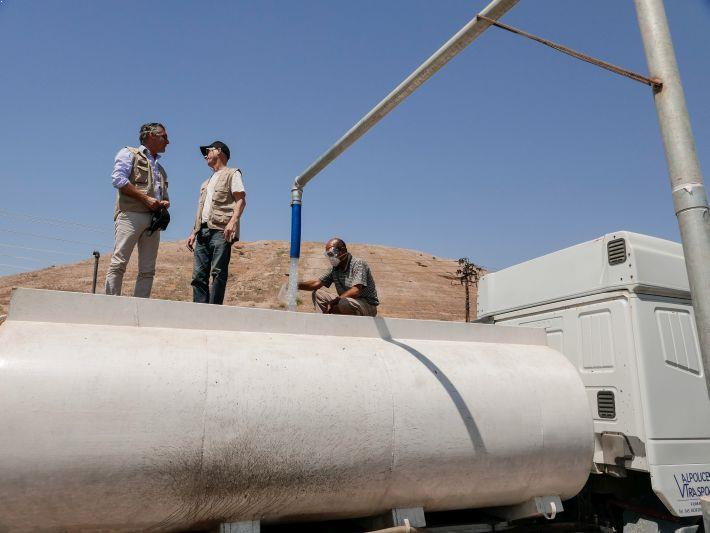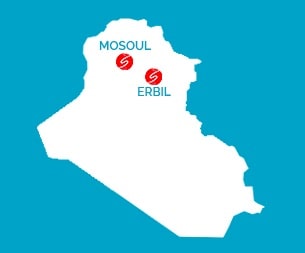The fighting and the siege of Mosul have been destroying the city for months. SOLIDARITÉS INTERNATIONAL continues its efforts and keeps providing an increasing amount of drinking water to the residents trapped in the city. A critical emergency response has to be developed in other cities and followed by a more sustainable reconstruction.
In the city, besieged since October 2016, most facilities has been destroyed or out of order: schools, hospitals, electric networks but also water networks. Inhabitants are struggling to find water and food. In the chaos, SOLIDARITÉS INTERNATIONAL’s mandate is to provide urgently drinking water through tanker trunks produced in a treatment station.
To this day, thanks to the Hamam Al Alil station 40 km south of Mosul, we can provide 50,000 people with drinking water in West Mosul, not far from the old town, as well as 2 displaced people camps and a rural hospital.
Guillaume Woheling, Head of Mission in Iraq.
We are building a new water treatment station in Abu Saif, even closer to Mosul (13 km from the city). “This new station would enable us to double our distribution capacity and to reach up to 90,000 people in 3 neighbourhoods in West Mosul, taken over by the Iraqi army”, enthuses Sarah Chauvin, in charge of our Middle East programs.

Renew economic growth
After this emergency aid, responding to a critical need under 40° heat, a reconstruction plan and support for return would be needed. The populations have lost everything and lack the means to address their own needs.
The city is entirely destroyed. Collapsed houses, scraps, rubble of bombed buildings are everywhere on the streets… The reconstruction of Mosul will last at least 5 years.
Edouard Lagourgue, president of SOLIDARITÉS INTERNATIONAL just come back from Iraq.
After providing people with essential items, such as water, food and hygiene kits, SOLIDARITÉS INTERNATIONAL teams plan to offer resilience activities to generate income or to distribute cash to the more vulnerable families. “Today, some people are returning to liberated neighbourhoods, says Guillaume Woheling. Some markets resurface and that is good sign. But people have no money. The city must renew with economic growth, we must inject money so that the whole economic process can restart.”
From Mosul to Kirkouk, taking aid further
If Mosul is under the spotlight and already benefits from international aid, other parts of the country, still controlled by so-called Islamic State, are not covered by the humanitarian actions. South Kirouk, in Sinjar governorate close to the Syrian border or in Anbar governorate, intense fighting has been leading to population displacements. “SOLIDARITÉS INTERNATIONAL tries to take action in those areas, little or not covered in water but also in other needs, waiting for a sustainable solution.”
Iraq
Context and action- 43.5 million inhabitants
- 121st out of 191 countries on the Human Development Index
- 27.749 helped people

